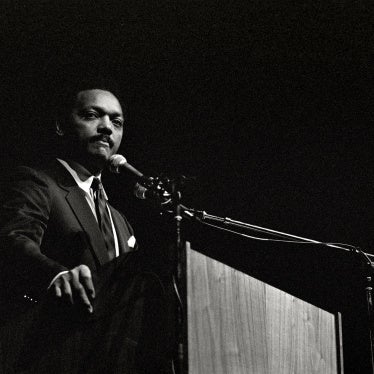Newly obtained official data confirm the need for reform of New York's drug laws. Nearly 80% of the drug offenders who received prison sentences in 1997 had never been convicted of a violent felony and almost half had never even been arrested for a violent crime.
"New York's drug laws are among the country's harshest," said Jamie Fellner, associate counsel of Human Rights Watch. "Not only do they waste public resources, but they also violate basic notions of justice by putting minor nonviolent offenders behind bars." Human Rights Watch's research suggests that most drug offenders in the criminal justice system are street-level sellers caught in "buy and bust" operations staged by the police, addicted individuals supporting their habit through low-level positions in the drug trade, "mules" who carried drugs owned by someone else, and drug dealers' girlfriends and wives.
Some supporters of New York's drug laws have argued that most drug offenders are violent criminals. The new DCJS data contradict such claims. That data also indicate that many of the drug offenders sentenced to prison are first offenders. One in three had never even been previously arrested for a drug felony, and half had never been convicted of one.
According to the DCJS analysis of the prior history of the 10,047 men and women sentenced to prison for drug offenses in 1997:
77.5% had no prior violent felony convictions.
47.6% had no prior arrests for a violent felony.
50.9% had no prior drug felony convictions.
33.3% had no prior drug felony arrests.
Of those who had been previously convicted of a drug felony, 89% were convicted of the lowest categories of drug crimes (class C, D or E).
31.8% had no prior felony convictions for any crime.
17.2% had never been arrested for any felony.
Only 9.7% had prior convictions for both drug and violent felonies.
Under laws passed a quarter of a century ago during the administration of Governor Nelson Rockefeller, even minor drug offenders face mandatory prison terms. Judges cannot set fair sentences tailored to the conduct and culpability of each defendant and the danger they pose to society. The law permits no distinction between a person who makes a one-time delivery of drugs for a small fee and a major trafficker. And the sentences are extreme: a person convicted of one sale of two ounces of cocaine receives the same prison term as a murderer or rapist—at least fifteen years to life. Many addicts who could be helped with drug treatment are warehoused instead in prison—usually upstate and far from their families and communities.
Thousands of drug offenders have ended up in prison as a result of these laws. Few are significant traffickers. According to the Department of Correctional Services, there were 22,407 drug offenders under custody as of September 1, 1998. Twenty-five percent of them were convicted of simple drug possession. Sixty percent were convicted of the three lowest felonies—Class C, D, or E—which involve only minute drug amounts. For example, only a one-half gram of cocaine is required for conviction of Class D felony possession—and 1,242 people are in prison for that offense.
The DCS analysis also reveals that one in five of the drug offenders under its custody—4,450 people—had no prior felony convictions. Another 7,501 had only one prior conviction. That is, more than half (53.4%) of the drug offenders in prison had one or no prior convictions.
Because of the severe and rigid sentencing scheme mandated by the drug laws, low-level drug offenders face years in prison. According to the DCS analysis of the sentences of the total population of drug offenders under its custody, the average maximum sentence for first felony offenders convicted of a Class B felony is 87.6 months, 68.1 months for a Class C felony, 56.5 months for a Class D felony, and 42.4 months for a Class E felony. Even if an offender does not serve the maximum period behind bars, his or her liberty remains conditional until the maximum period is completed.
Human Rights Watch recognizes stiff prison sentences can be appropriate for addressing violent crime and protecting communities. But such sentences are misguided and destructive when it comes to nonviolent drug offenders. Indeed, as documented in "Cruel and Usual: Disproportionate Sentences for New York Drug Offenders," a Human Rights Watch report released last year, New York's drug laws violate fundamental principles of justice by yielding disproportionately harsh sentences all too frequently.
Copies of the data produced by DCJS and DCS are available from Human Rights Watch by calling 212-216-1808.








